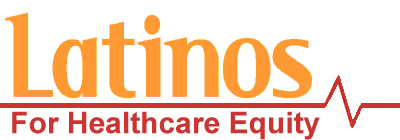We’ve come too far on health care to stop
Henry Cisneros – Special to the Express-News
In many ways, 2009 was the year in which the American people got closest to understanding the nuances and merits of health care reform. As the President’s State of the Union address implied this week, 2010 is the year to get the job done.
Last year, we saw and heard hundreds of town hall meetings on the subject, dueling television spots, talk radio debates, informational meetings, protests, and intense personal conversations in homes and offices across the nation. The Senate Finance Committee held more than 53 health care reform meetings; the Senate Health, Education, and Labor Committee conducted 47 hearings; and the full Senate allocated 25 consecutive days to the subject. Over the last two years, the House and its committees held 79 hearings, and members participated in more than 3,000 health care town hall meetings.
Now as 2010 begins, the House and Senate have produced bills that have enough building-blocks to be able to say that we are nearing the ending of one of the most important, most discussed, and most participatory legislative efforts in decades. We can expect the opponents of health care reform to turn up the volume in the weeks ahead and argue that the process has been flawed, that the results are imperfect, that basic principles need to be re-examined, and that we need to start over. Some opponents will say anything to frighten the public to derail reform.
But the American people have come too far together to let the hard work be lost. Now is the time for the public to tell House members and senators that they should finish the job and pass legislation which clearly will have many constructive, even historic, attributes. Among provisions in both the House and Senate versions are these:
It will be unlawful for insurance companies to deny coverage based on pre-existing conditions, to cap total coverage, or to drop or diminish coverage when people actually become ill and need insurance the most.
Reforms will expand Medicare benefits to include free yearly check-ups.
The bills assure that almost 31 million presently uninsured Americans will be covered, thereby increasing access to quality, affordable health care.
Tax credits will be offered to small businesses to help them afford health insurance. Preventive care will be free, with no co-payments or deductibles.
A national health care exchange will be created using information technologies to increase consumer choice, guarantee coverage, and reduce costs.
Because the present system is ruinously expensive and results in higher costs to all from the untreated medical needs of the uninsured, the measures in the bills use savings to keep costs within the target of $900 billion over 10 years and actually reduce the federal deficit by $132 billion over the decade.
The bill likely to emerge from the House and Senate measures will not incorporate all elements that health reformers advocated. But it is the product of a public endeavor, it balances many competing interests, it makes substantial progress, and it will represent the most comprehensive success in health care reform in decades.
Recognizing how many lives will be touched, calculating how important health care cost reductions are to our economy, and reflecting on how reforms that have been languishing for a generation will be enacted, the right thing to do is to urge the Congress to pass these measures now that we are this close to the finish.
Henry Cisneros is a former secretary of Housing and Urban Development

